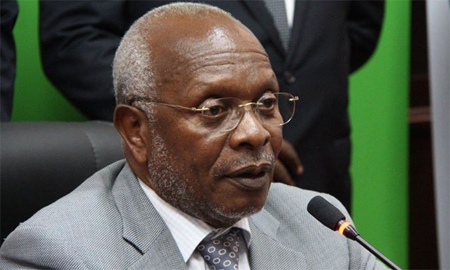How will recently discovered mineral resources be used to improve the economic standing of Mozambican citizens?
When our Government started to envisage a development plan to update our country’s infrastructure, we didn’t do so just because of the mineral resources. Our main focus for developing our country has always been agriculture, fishing and tourism. Today, although we talk about mineral resources, we still see agriculture and fishing as our main focus, which will improve the well being of Mozambican citizens.
We believe the mineral resources will help spur the economic development, but this will only happen in about 10 or 15 years. We cannot and will not wait for this to take place. We are developing other projects; right now we are paving 2000km of roads and they are not being constructed with money from coal or gas.
It is the major hubs of the country that will see the direct benefit of the current plans; these big private and public players are the ones that have the greatest interest in the construction of these roads. What is their participation in the financing, maintenance and operation of domestic infrastructure?
These companies have just emerged, but the plan is to build roads. This is a plan that we already had long ago. We just started negotiating with some companies on Public-Private Partnerships, and currently we’re issuing public tenders for the maintenance of these roads (which have already been completed). Within a few days, we will award some sections. It is exactly the same for railways, but this is handled by the Ministry of Transport and Communication.
Access to housing is a human right. Particularly for the youth, housing is the first step towards economic independence. What is your strategy and vision to give access to the Mozambican youth to their own homes?
We have a program to promote the development of housing. First, we’re aware that a considerable segment of the population needs land with basic social infrastructure to be able build their own housing. One of our main focuses is to provide the municipalities with basic infrastructure and distribute the plots.
We are creating programs with funds from the state itself; we build houses, but we prefer to build low-cost housing, because young people generally do not have the financial resources and they need an affordable home.
What is the real risk for foreign companies who are willing to take a bet on Mozambique but are still reluctant due to red tape and diving into an unknown market?
I think real investors know that risks must be taken; they study the market (it’s not worth being afraid from a distance, because then they get more scared every day). I think investors have to come and see firsthand what is happening and to study the market; one thing is hearing from us that there are market conditions. Investors who are here came and studied the market first and eventually came to the conclusion that they can make good deals.
Companies should not think of coming to sell glass but come to and set up a plant for the production of glass or sanitary ware and building materials. Houses become more expensive if we have to import all the materials such as bathtubs, mirrors, glass, etc., except the wood, but we have no factories to produce frames, windows and doors.
Not only is it necessary for investors to come and build these factories, but it’s also important that they train Mozambicans.
It requires technical ability to do all this, but the major problem is the money needed to open such plants and that is where we invite the investors. My biggest concern is about the building materials because, while there is no production in large quantities, the construction industry itself and the factory will not develop.
Where would you like the country to be positioned in the next 10 years?
We are making the necessary efforts to ensure that the country will change in the next 10 years. We want our infrastructure to reach every corner of the country and enable goods to reach the districts that are the centers of the resources production. We want to develop a very fruitful agro-business sector. We have had a difficult time in processing products. We have many farming products that are not processed, and consequently end up being lost.
This process is made possible because of SMEs, which are fundamental in solving our problems and in finding our domestically processed products in national supermarkets, such as cereals and fruits. We are encouraging the development of these SMEs to foster this growth.
One important thing is that Mozambicans must accept the rules of the economy and help the country develop. The elevation of the country’s morale involves an investment in training to develop the ability to be innovative and to think like an entrepreneur, which is something that Mozambicans have naturally.

0 COMMENTS